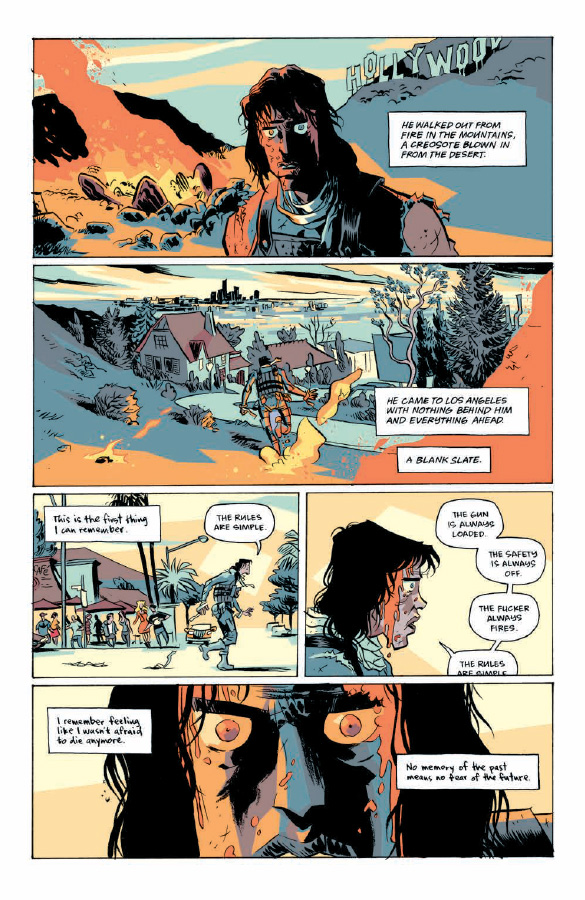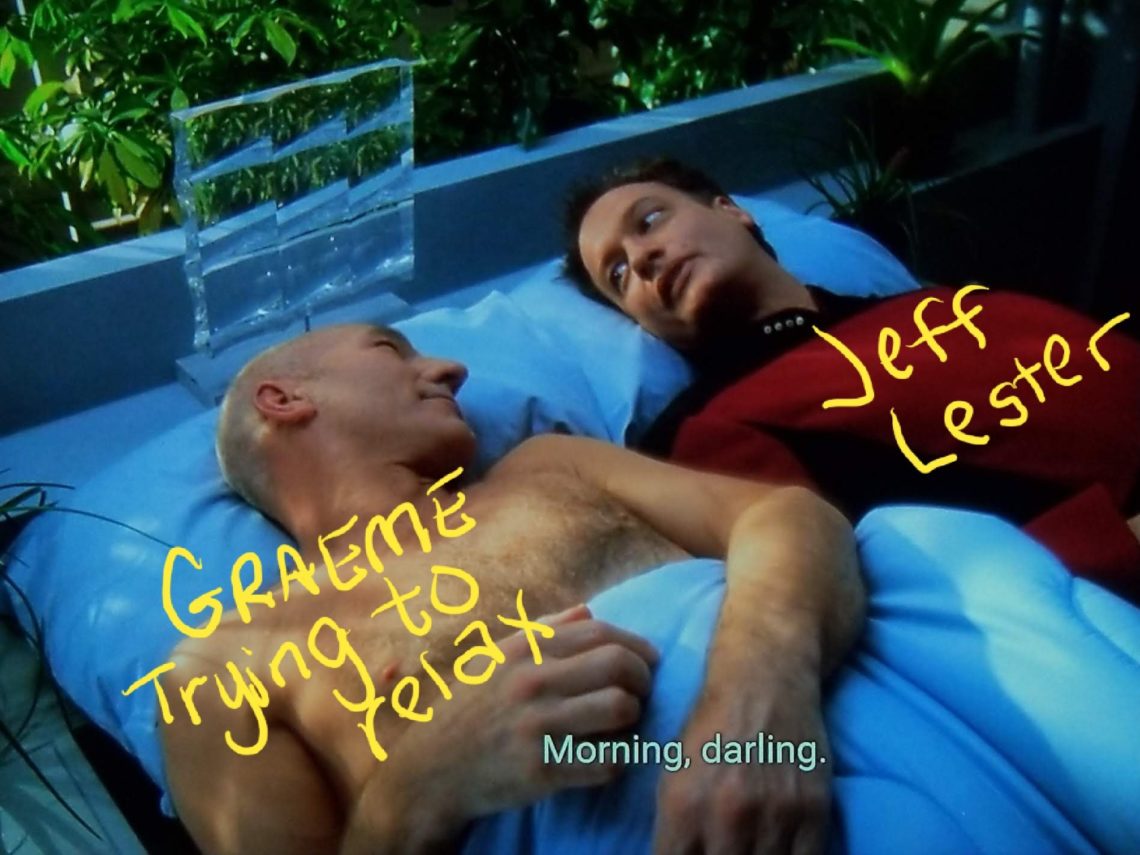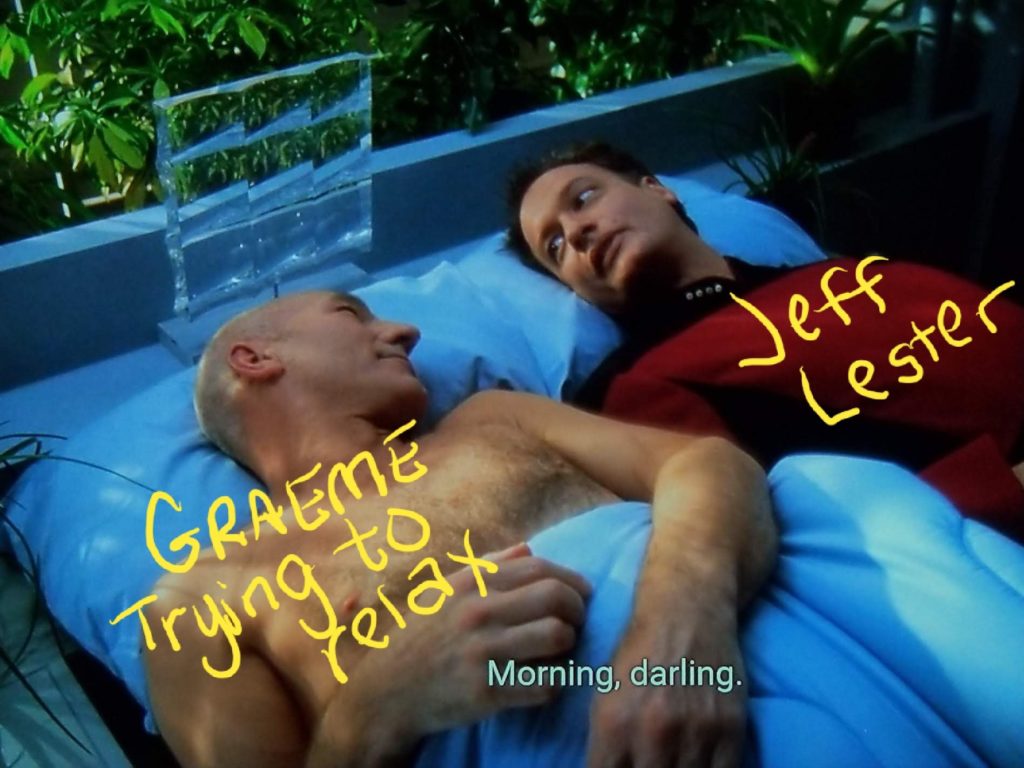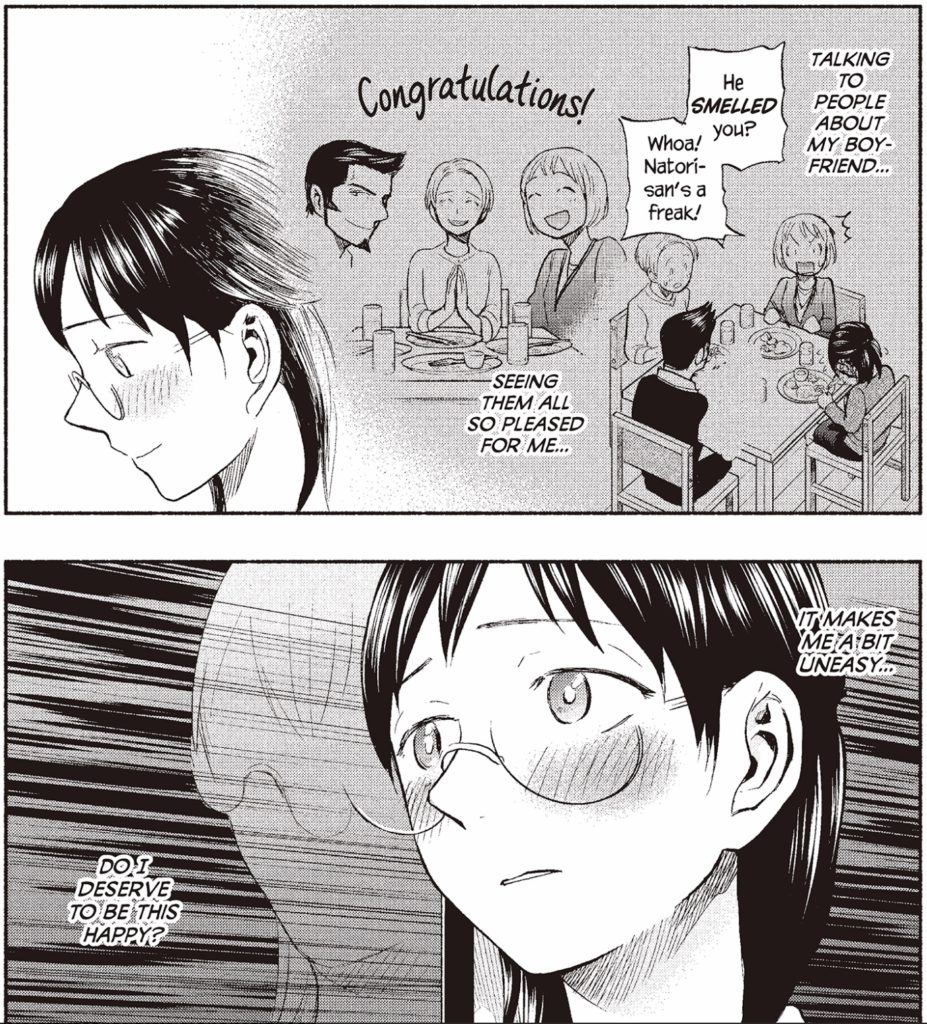0:01-3:41: Greetings! How are things with you? Good, we hope! As for us, Jeff is (to use his phrase), “uhh…..I, I, I, I…uhhhhh…” and Graeme is in the relatively rare position—for Graeme, it’s actually incredibly rare—of having the week off! What did he do? And why did Jeff keep hounding him about it. Find out here!
[rusty shackles tweet?
WandaVision finale prediction pic.twitter.com/v0s1uzYzfb
— Rusty Shackles – A HAND IN THE GAME OF DEATH (@rusty_shackles) February 7, 2021
3:41-37:55: It probably will not surprise you to find out that Graeme has, in his week off, been reading comics?! But the comics themselves might surprise you. Join us as we discuss Age of Ultron, Civil War II, and House of M, all written by Brian Michael Bendis and drawn by a plethora of talented artists! What conclusions did Graeme draw from these Marvel events? And why won’t Jeff accept any of them? (A slightly unfair reading of Jeff’s intentions, I hope.). And then around the 19:12 point, Graeme pulls out yet another Marvel event he read: Secret Empire, the Marvel event written by Nick Spencer. I mention this particular timestamp in part because Jeff clearly can’t figure out what the hell Secret Empire is, in part because he’s overwhelmed with Gene Autry references and in part because he was genuinely expecting Graeme to say Secret Invasion. So….good times. Good times.
37:55-52:14: That’s what Graeme’s been reading. But here’s a quick rundown of what he’s been watching! The march to 200 movies begins here! (Well, it probably began before here, but this is where we hear about it first.). Films are listed but the real topic of discussion here is Bloodshot, the 2020 Vin Diesel film, which suffers tremendously from comparison with The Meg, the 2018 Jason Statham film, and actually suffers from comparison to just about anything else, frankly.
52:14-1:06:47: Also! Graeme’s watched both Kill Bill movies which Jeff found surprising—he doesn’t really think of Graeme as a Tarantino guy, to put it mildly—so, not unlike Graeme’s period of relaxation, Jeff finds this interesting to an unhealthy degree! What did Graeme think? What did Jeff think of what Graeme thought? This show notes are maybe hitting the end of their effectiveness, aren’t they?
 1:06:47-1:28:31: Jeff tries for the “Hail Mary” of “Okay, we’ve talked about Brian Bendis and we’ve talked about Quentin Tarantino—how can we contrast them a bit?” Does Bendis have thematic concerns and if so, what might they be?
1:06:47-1:28:31: Jeff tries for the “Hail Mary” of “Okay, we’ve talked about Brian Bendis and we’ve talked about Quentin Tarantino—how can we contrast them a bit?” Does Bendis have thematic concerns and if so, what might they be?1:28:31-2:03:45: With nearly ninety minutes of flogged horses in our wake, we finally get to Jeff talking about some of the stuff he’s been reading and enjoying: a bunch of stuff that got uploaded in the DC Universe to the DC Universe Infinite; five volumes of Sweat and Soap by Kintetsu Yamada; Superman Kryptonite Nevermore TPB; Power Man & Iron Fist Epic Collection Vol. 1; Savage Avengers #17, Avengers #42, and Immortal Hulk #43, which also leads us into a very weird “Joe Bennett does an anti-semitism, supposedly accidentally” story that is, uh, comics news this week? Also discussed: ’70s Superman and Jeff’s unabashed joy of pastiche villains; cracking the Seinfeld code; Let Them Live: Unpublished Tales From The DC Vault #1 (currently exclusively available on DCU Infinite); our next readthrough after Drokk!!; Shazadam; and more.
2:03:45-end: Jeff watched Palm Springs on Hulu and has thoughts about what he calls the Groundhog Day genre. But! They will have to wait as it’s over the two hour mark and so we’re really better served by talking about…Closing Comments! Look for us on Stitcher! Itunes! Instagram! Twitter together and separately: Graeme and Jeff! Tumblr, and on Patreon where a wonderful group of people make this all possible, including Empress Audrey, Queen of the Galaxy, to whom we are especially grateful for her continuing support of this podcast. (Also, don’t forget about Spotify!)
Next Week: Valentine’s Day, and so a skip week. But join us in two weeks for Drokk!!





Cutting? Pasting? There’s a link for that:
https://theworkingdraft.com/media/podcasts4/WaitWhat312.mp3
In Kill Bill, the reason you learn the Bride’s name in the second half of the second movie (and why Lucy Liu is introduced in anime) has to do with how the movie is structured and what it means, at least in my estimation, which is that for me, the movie is about the allure of pop culture, but also how it’s toxic.
And so in the first movie, the character is a MOVIE character existing in a movie universe. The first fight in the movie, a character tries to say “Hey i’m living in the real world now, I have a daughter” and the Bride doesn’t care; kills her in front of her kid, which is horrible. And from there, a movie proceeds, with hyperbolic movie violence. But she’s not a person– she’s a movie superhero, she’s THE BRIDE. The violence has a cleanliness to it– it’s almost comedic. And Lucy Liu is a character who has completely bought into the movie universe– they talk about how she’s like an actor herself, because of how she has to perform her race.
But in the second movie, she fails, and she is killed. Because she comes across Bud, who has walked away from the movie universe. He mops up at a strip club. He lives in some trailer. He just wants some money for a sword. But he doesn’t play by the rules of her movie, so he can kill her. (Is it problematic because he’s a man? I don’t know– it’s a valid read, but it’s not how I read it…).
And they bury her, and she has to be reborn into the real world to survive the rest of the story. (My argument falls apart a little here because Pai Mei, but I would get extra-long-winded talking about Pai Mei! But I think that’s the movie basically saying “it’s not all bad but you have to remember why you really like this stuff!” ). And then, after she’s reborn, she’s no longer The Bride– she’s just some girl with a name, she’s Beatrix Kiddo. And the fight after that is the fight with Darryl Hannah which is great, but not a movie fight the way the fight with Lucy Liu was– it’s just two maniacs in a trailer, ripping each other to absolute shit. It’s gross and Darryl Hannah doesn’t get some cool death at the end like Lucy Liu– it’s a fight fight, not a samurai movie fight. Darryl Hannah tries to have a samurai movie fight like in a samurai movie, and Beatrix rips out her eye for making that mistake.
And the fight with Bill isn’t some climactic violent thing either. When she goes on to confront Bill, they just talk and she can see that what he offers is very appealing, and very sexy, but when it comes down to it, she doesn’t want to live in his movie. She wants to go be a mom. When you meet him, he isn’t some invincible bad-ass Cool Guy– because as you point out, the scene before, you hear that these are just scuzzy pimps. (I don’t think a comic book podcast should express surprise about Tarantino linking Cool Guy geek culture with toxic masculinity; I do that every Tuesday, in the park). And the end of the movie is her basically saying through the medium of kung fu violence, this character doesn’t mean anything to her because he has no heart. (And there’s that other level it works at, where it’s a love letter to his mom and maybe his feeling like she protected him from something…?) He even has that speech though, the Clark Kent-Superman speech, really underlining how his character is all about certain temptations, I guess, I don’t know what the right word is.
I think about those movies a lot for some reason, on my commute, so I’ve been meaning to type all this out. But I think they’re just really about Tarantino having a conversation about needing to move past or not be consumed by the things he love, or damaged by them, as much as he loves them. Without being like “this is all garbage”, while still going “no, there’s something good here, though– there’s something good about how these movies have these mentors who push you to be better, one little toe at a time, etc.” It’s not his best or even in his top 5, Once Upon a Time is a lot better (I think the Bright Wall Dark Room essay on Once Upon is the one to read). But I think Kill Bill’s interesting, at least.
Abhayyyyyy, this is so good uwu (and all that).
That said, I’ve got quibbles that may or may not be meaningful—I think the schism between parts 1 and 2 is if they’re not as much between the real world as between different types of movies? the first movie is action genre movies with their level of prerequisites, but Madsen represents the sort of movies that come after, the 70s style American auteurist slant of action genre movies that allow the opportunity to escape those prerequisites (but also introduce a lot of seriously scuzzy stuff: the sheriff in Part One becomes the pimp in Part Two). Both sets of movies are what Tarantino loves about films and about what make him him.
The extent to which Bill and Bea are director and star playing out their drama—I love you but can only express it through torturing you; you will survive me but only by breaking my heart—is just a bit more resonant to me…and is also, for me, only given a serious benefit of the doubt to Tarantino by his later works and how they seem to be in conversation with one another and with cinema.
But! Like I said, very much a quibbling point. I love so much of the stuff you unpack in here and I can feel it already wrinkling my forebrain in new ways!
This is a super interesting take and I really enjoyed reading it! Thanks man.
My experience with Kill Bill is pretty much the opposite of yours, Jeff, the movies came out when I was in high school and I saw vol. 1 once in the theatre, and that might be the only time I’ve seen it, while I saw Vol 2. three times at the cinema, and then two or three times after that. That movie was my jam when I was younger, I absolutely loved it. I think I just thought all the dialogue and stuff was really cool, I don’t know and just the flow of it. It was the first time I had seen any Tarantino movies.
I haven’t seen either movie in a long time, and sometimes wonder if I should revisit them, I wonder what I would think about them now. When I saw them I hadn’t seen a lot of classic kung fu movies, mostly whatever samurai and kung fu was coming out at the time (like Kitano’s Zatoichi, House of the Flying Daggers and Crouching Tiger, Hidden Dragon), and caught a few on tv, and I hadn’t seen any spaghetti western, whereas now I’m a huge fan of that genre, and have also seen way more old kung fu stuff. So I kind of wonder what it would be like revisiting them now that I’m more well-versed in the stuff he’s referencing..
Huh, yeah that might be interesting for you, especially in a movie(s) like this one. Dude like Sean Witzke who have really done the work can untangle some of the stuff swimming around down there with Tarantino’s interconnections…so you’d probably get a kick out of the material again.
There’s certainly stuff like, say, Lady Snowblood that might have underwhelmed in some ways by the time I finally saw it thanks to Kill Bill.
I just really need to sit down and revisit Part 2, maybe without watching Part 1 first. It’s been way too long and me talking about it has got to be more than a little inaccurate.
It’s almost like Bendis is incredibly, incredibly miscast on big event comics. I was going to say something much ruder, but I’ll leave it at that.
Having recently read the big EXILE Omnibus recently, I’d like to toss out post-Crisis Superman as a proper insane candidate for a post-Drokk read thru. Maybe starting with the “Whatever Happened…” and ending when the new guard of writers comes on in the late nineties/turn of the millennium (including the Stern/Swan strip in weekly era ACTION). It’s a run spread out over several tightly interconnected series, one shots and minis with vast swathes I imagine completely absent from DCUI, so it’s logistical insanity… but it would be fun!
I honestly would defend the overall Marvel arc from New Avengers through Civil War, the Initiative, Secret Invasion, Dark Reign, and Siege as telling a basically coherent story, a story that, while frequently not at all good in detailed execution, is pretty strong in overall conception. Obviously Bendis was not the only person responsible for that overall story, but he’s more important than anyone else. (And the most cringeworthy thing in there, the main Civil War miniseries, is one of the things where he’s not primarily responsible.)
It falls apart after that, in part because crossover events after that (like Civil War II or Fear Itself) don’t proceed from the overall ongoing story in the way that things did (or rather were contrived so that they seemed to do) up to Siege — they’re just there because it’s time for another crossover. But up through Siege I think that this is one of the stronger instances of ongoing continuity executed across a line over a period of several years.
To contribute to the Bendis conversation, I have been reading Sam & Twitch and that comic has so much of his dna all over it. It came before he made his mark on Marvel so it has a lot of him finding his feet and developing his style. However his dialogue is unrestricted so there are plenty of long back and forth conversations like one panel where two characters say the word salt five times in a row. There is also elements of his other ticks like research and awareness of social issues. And to speak to his cinematic awareness, he does that too, but not well. Like one issue is told completely from a first person POV of one of the characters like a found footage movie, but this came out before the Blair Witch Project. Unfortunately reading that issue was completely disorientating. There is also another issue that starts in media res and has a character say “How did we get here?” before the flashback. Then after showing all of the moments leading up to the beginning of the issue they reprint the same panels from earlier. So there is an attempt to be cinematic, but he doesn’t know how to do it. Even in this series he does the whole who polices the police storyline, or who watches the watchmen. Where Sam & Twitch go after a bounty hunter that is stealing other bounty hunters’ bounties. It is a very entertaining arc, but it has many flaws. I couldn’t find a motive for the villain other than he just wants to be a badass. Also the beginning inciting incident is clumsy. There is narrative of Sam and Twitch overstepping their bounds, but that doesn’t get resolved and ends with spoilers Twitch killing the villain because he killed his girlfriend.
Anyway I’m starting to ramble, but before I end I also want to mention that I also read the first four issues of his Spawn Undead series before tapping out, because each issue is the same. This comic is Bendis diving deep in the muck pool of dark and grittiness for the sake of dark and grittiness. Each issue starts with this racist author appearing on daytime talk shows being racist and smug. Then there is a long scene where Clown would talk to someone about something horrible like for example a woman becoming a porn star to make money then not being able to leave the industry because she is addicted to crack. At the end of these scenes Clown would kill someone and Spawn would appear to say “Why did you have to do that for, bro?” Each issue followed that same formula and after four issues I had to give up.
Anyway if you ever find yourself curious about Bendis’ work in the Spawnverse don’t both. It is somewhat entertaining, but the flaws are hard too ignore.
As soon as I work out what ‘playing the devil’s harp’ is a euphemism for, I’ll be doing it.
Thanks for another great show, enjoy your week off with St Valentine’s and birthdays.
How about keeping to the two Wait What’s to one Drokk! schedule and not have the next show be the latter? Otherwise reality may collapse? I don’t DO Dredd!
LEGION!
I don’t believe either of you are X-Men fans, but saying the ending of “House of M” was earned seems so weird to me. Maybe in isolation of that series it is, but I remember people being pretty annoyed that Bendis wrote an event comic that dramatically affected all of the X-Men comics (which he didn’t even start writing for seven or eight years).
It seems like post Moore, Morrison, and Miller there’s a generation of writers that believe comics are a place to explore ideas but don’t have the wherewithal to do so, so they simply gesture at them. It’s the difference between getting under the hood of a genre a la Watchmen, or probing ideas about continuity and authorship (Animal Man), or just relentlessly tightening the contradictions (Miller), and gesturing at dysfunctional relationships (Fraction), or social identity (Bendis). (I think Brubaker gets closer to the mark, at least insofar as he’s willing plumb genre tropes for extended periods of time, even if the intellectual yields and visceral thrills don’t quite hit the heights of his forebears.)
Ultimately, I think Jeff’s right that Bendis gets into trouble inasmuch as he seems capable of valorizing the difference between a comic that’s great and one that’s merely good enough, yet also seems quite satisfied by pumping out merely good books. That’s a weird way to work in a medium you purport to respect. It’s easier (for me, anyway) to forgive mediocrity when it’s produced by a person who seems to love the mediocre (Dan Scott), or someone who seems only passingly invested in the art form (Millar). Those books aren’t any better, but they don’t carry the disappointment of reading something that lacks the courage of its convictions.
Glad I get to post AFTER Abhay has said his piece so I don’t look like an idiot talking about Kill Bill. Now everyone will know I willingly made myself look like an idiot.
Kill Bill… It’s a great distraction, but not Tarantino’s best homage to the schlocky movies that influenced him. I would say Hateful Eight and Deathproof did a better job of that. The tonal shift between the two films is so great I am incredibly incredulous when Tarantino claimed he intended them as one film and the studio made him split them up. And lot of it is just so twee? I guess. I like what Abhay had to say above, but I still feel the bleeped out name schtick could have been handled better. Why not call her “Her” or “The Runaway” or “The Traitor” or whatever, and then introduce her name in the second movie. You’d still get that dichotomy in the presentation of the character, but the prominence of the gimmick wouldn’t have to supplant it. (Sorry, finding out name in the second film provided zero pay off on its own.)
I don’t think I’m the first to say this, but Tarantino reminds me a lot of Grant Morrison. Sometimes Morrison brings their A game when parsing their interests through a modern lens (All-Star Superman), sometimes the material cannot rise above the sum of its subpar parts (Batman up through R.I.P.), sometimes the material just comes off as a vainglorious vanity project devoid of both craft and substance. (I hesitate to mention which of Morrison’s projects I’m referencing.) Kill Bill felt very much like that Batman run. “Here’s a charcuterie board of some schlocky cinema I love!” But instead of a proper spread of assorted meats, breads, and cheeses, he’s replaced it with Spam, Saltines, and Cheez Whiz. He loves those Japanese yakuza films, going as far as to use one of their most recognizable theme songs for the Crazy 88s entrance, but those parts of the film are devoid of anything you would find in a real yakuza film: themes of loyalty, family, crime and society. Taking all the zany covers from 30 years of golden and silver age Batman comics and saying they’re all part of the real Batman doesn’t mean you’ve told a story or said something of interest, unless you’re the reader who really must know how a harlequin-themed batsuit fits into a Christopher Nolan super serious Batman continuity.
I do remember spending a few years after seeing Pulp Fiction numerous flip flopping on whether I had enjoyed the film or not, and regardless of where I was on that spectrum, was the film “good” in any sense of the word. (I do remember being angry it losing out to Forrest Gump for Best Picture.) Make of that what you will.
Despite my criticisms of Kill Bill, I’m more than happy to discuss the film, and in spite of Tarantino’s shortcomings, he’s a director whose films I always look forward to watching. Despite being disappointed by Morrison as many times as I’ve been engaged, their name on a book will always make take notice.
As for Batman/Judge Dredd, first, thanks for the shout out. Second, I think the second story is good just for the Cam Kennedy artwork, but it’s very much in the vein of Grant’s run on Detective Comics. The third one with the Riddler is, um, it exists! Sorry, it’s not that bad, but I probably fall in between Jeff and Graeme on that one. But I really want you to read the fourth Batman/Dredd crossover, the one where the Joker becomes a Dark Judge. That’s one I think the two of you could have some fun with.
Jeff,
If you enjoyed Chainsaw Man, I’d also recommend checking out Fire Punch from the same manga-ka. it’s an insane post-apoc story about a man on fire. Also available via SJ